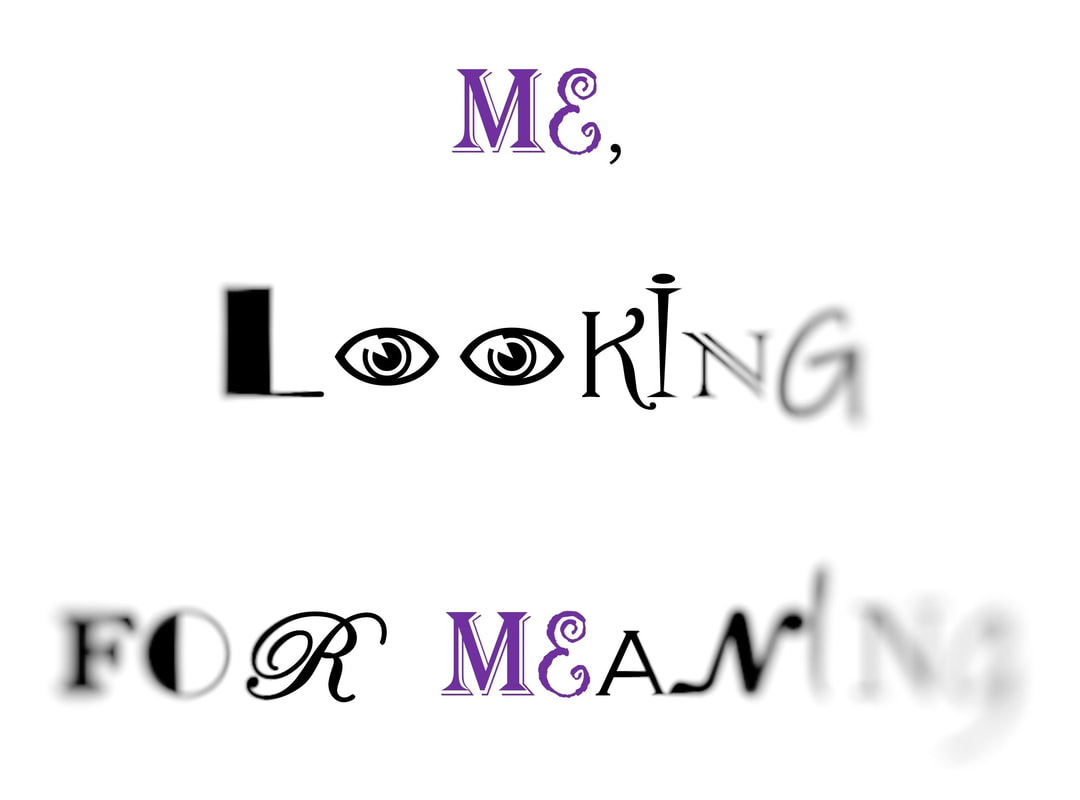The Importance of Having a Purpose

Having a clear understanding of our life's purpose is directly related to our quality of life. Feeling that our life is meaningless equals being miserable. If this feeling is persistent, it can a sign of a serious mental illness, a form of depression. Clearly, for an individual to go on with their life, they need to be able to give an answer to the question: "What's the point?" (this is true starting from a certain age, because children's motivation is different).
Our purpose determines how we feel about activities that occupy our daily lives. We make choices (where to live and work, who to spend time with, etc.) depending on what's important to us. If certain choices are forced and do not contribute to our purpose, we become dissatisfied. But here is a trick. We can explicitly choose a purpose that actually contradicts what our inner compass is telling us to do. We can choose a goal because of meanings (values, interpretations, ideas) shared by our communities. For example, it is not uncommon for people to strive for a profitable job because they perceive "having a high salary" as their driving purpose.
So, right after "having a purpose", the next most crucial thing is "knowing your true purpose". This is a part of self-awareness that we all should strive for in order to be happy and to contribute to a better society. Unfortunately, as people grow up, they seldom ask themselves why they are shaping their lives according to a certain purpose. Our parents and relatives, then our teachers, peers, and larger communities tell us what's important, and we accept it for granted: "It is what it is.". But it really does not have to be.
The best examples of how this process works can be found when we look at our jobs. A job is something that occupies a major part of our lifetime. People usually look for jobs based on their perceived life's purpose: what they feel is valuable according to meanings they have absorbed from parents or peers. It's enlightening to see how many people do not find their jobs rewarding. Here is an excerpt from the book Made to Stick (2008), where authors quote research presented in another book, The 8th Habit (2004).
"Stephen Covey, in his book The 8th Habit, describes a poll of 23,000 employees drawn from a number of companies and industries. He reports the poll's findings:
Then Covey superimposes a very human metaphor over the statistics. He says, 'If, say, a soccer team had these same scores, only 4 of the 11 players on the field would know which goal is theirs. Only 2 of the 11 would care. Only 2 of the 11 would know what position they play and know exactly what they are supposed to do. And all but 2 players would, in some way, be competing against their own team members rather than the opponent.'". (Heath & Heath, 2008, pp. 144-145).
I agree with the Heath brothers. It is pretty sobering. Having worked as a college professor, I suspect that similar statistics would apply to students, who often do not know what exactly they are learning and why. In other words, they don't know their true purpose. I hope that, as a society, we will start placing more value of this aspect of self-awareness, developing it ourselves and helping our children do the same.
It is equally important to remember that, whatever our driving purpose is, our sanity depends on the ability to do things in the spirit of self-care - which sometime means allowing ourselves to forget about our purpose and simply enjoy our existence.
SOURCES:
Covey, S. (2004). The 8th habit. Free Press.
Heath, C. & Heath, D. (2008). Made to stick: Why some ideas survive and others die. Random house.
About this project: Start page
Our purpose determines how we feel about activities that occupy our daily lives. We make choices (where to live and work, who to spend time with, etc.) depending on what's important to us. If certain choices are forced and do not contribute to our purpose, we become dissatisfied. But here is a trick. We can explicitly choose a purpose that actually contradicts what our inner compass is telling us to do. We can choose a goal because of meanings (values, interpretations, ideas) shared by our communities. For example, it is not uncommon for people to strive for a profitable job because they perceive "having a high salary" as their driving purpose.
So, right after "having a purpose", the next most crucial thing is "knowing your true purpose". This is a part of self-awareness that we all should strive for in order to be happy and to contribute to a better society. Unfortunately, as people grow up, they seldom ask themselves why they are shaping their lives according to a certain purpose. Our parents and relatives, then our teachers, peers, and larger communities tell us what's important, and we accept it for granted: "It is what it is.". But it really does not have to be.
The best examples of how this process works can be found when we look at our jobs. A job is something that occupies a major part of our lifetime. People usually look for jobs based on their perceived life's purpose: what they feel is valuable according to meanings they have absorbed from parents or peers. It's enlightening to see how many people do not find their jobs rewarding. Here is an excerpt from the book Made to Stick (2008), where authors quote research presented in another book, The 8th Habit (2004).
"Stephen Covey, in his book The 8th Habit, describes a poll of 23,000 employees drawn from a number of companies and industries. He reports the poll's findings:
- Only 37 percent said they have a clear understanding of what their organization is trying to achieve and why.
- Only one in five was enthusiastic about their team's and their organization's goals.
- Only one in five said they had a clear "line of sight" between their tasks and their team's and organization's goals.
- Only 15 percent felt that their organization fully enables them to execute their goals.
- Only 20 percent fully trusted the organization they work for.
Then Covey superimposes a very human metaphor over the statistics. He says, 'If, say, a soccer team had these same scores, only 4 of the 11 players on the field would know which goal is theirs. Only 2 of the 11 would care. Only 2 of the 11 would know what position they play and know exactly what they are supposed to do. And all but 2 players would, in some way, be competing against their own team members rather than the opponent.'". (Heath & Heath, 2008, pp. 144-145).
I agree with the Heath brothers. It is pretty sobering. Having worked as a college professor, I suspect that similar statistics would apply to students, who often do not know what exactly they are learning and why. In other words, they don't know their true purpose. I hope that, as a society, we will start placing more value of this aspect of self-awareness, developing it ourselves and helping our children do the same.
It is equally important to remember that, whatever our driving purpose is, our sanity depends on the ability to do things in the spirit of self-care - which sometime means allowing ourselves to forget about our purpose and simply enjoy our existence.
SOURCES:
Covey, S. (2004). The 8th habit. Free Press.
Heath, C. & Heath, D. (2008). Made to stick: Why some ideas survive and others die. Random house.
About this project: Start page
